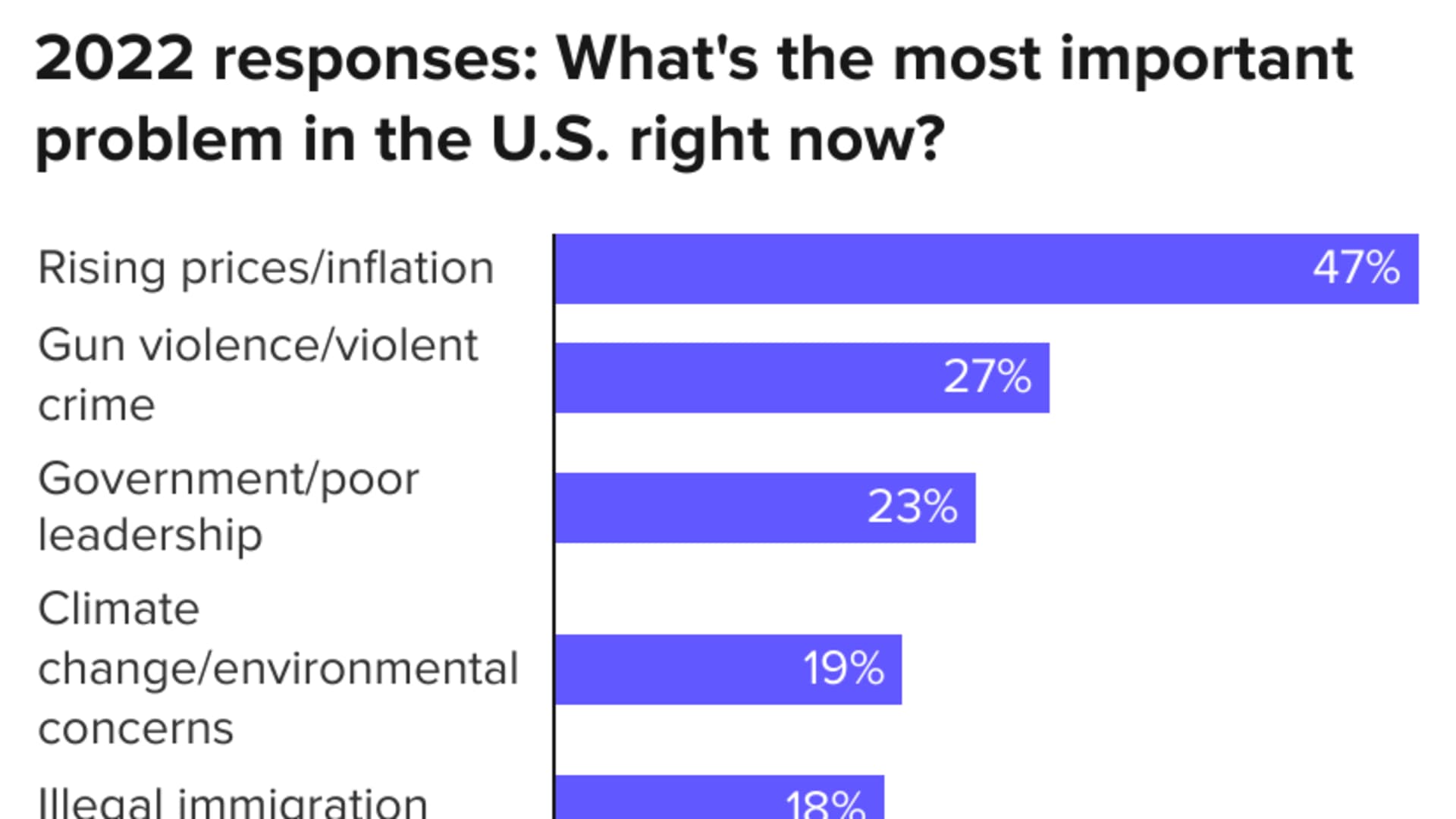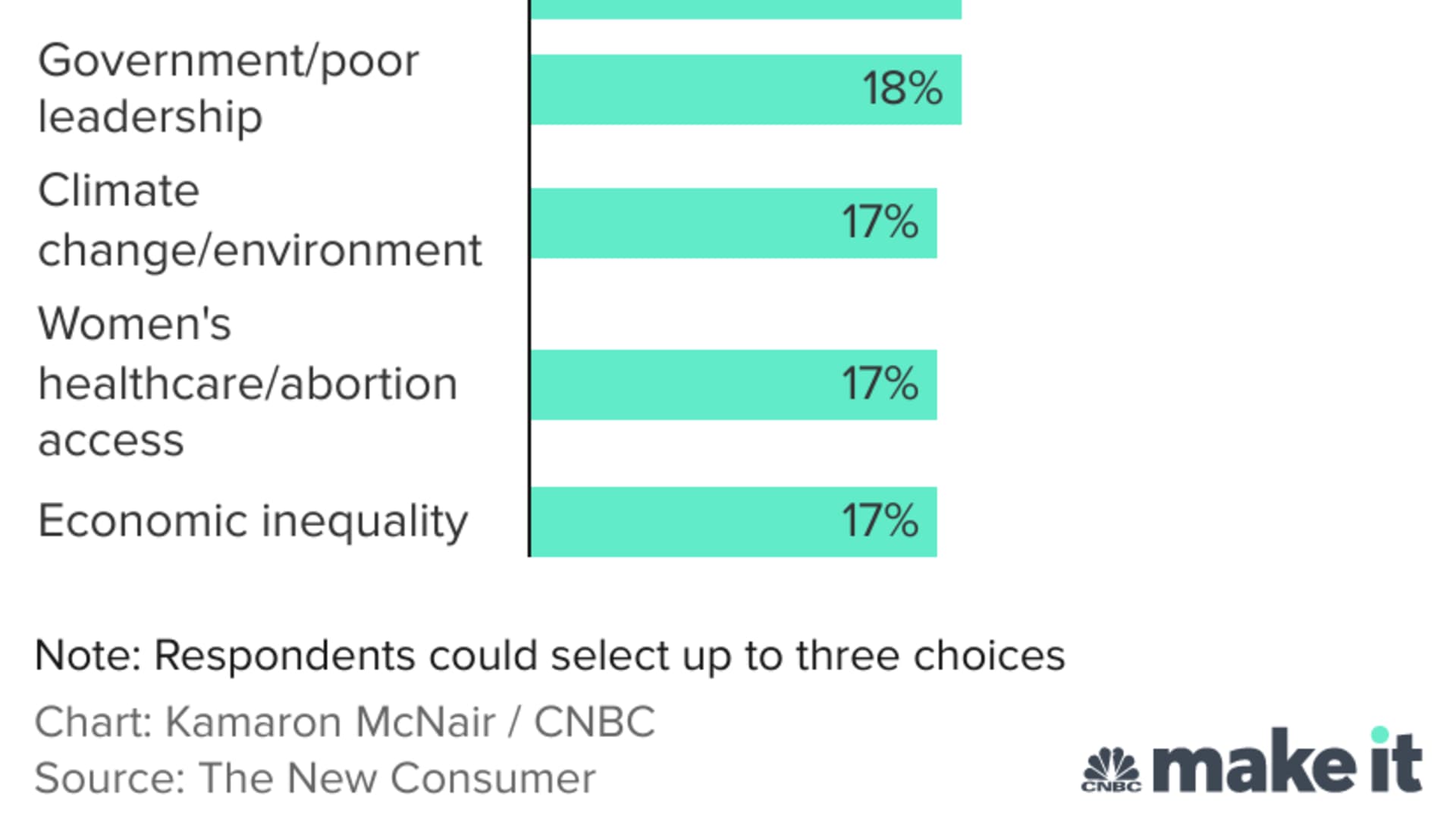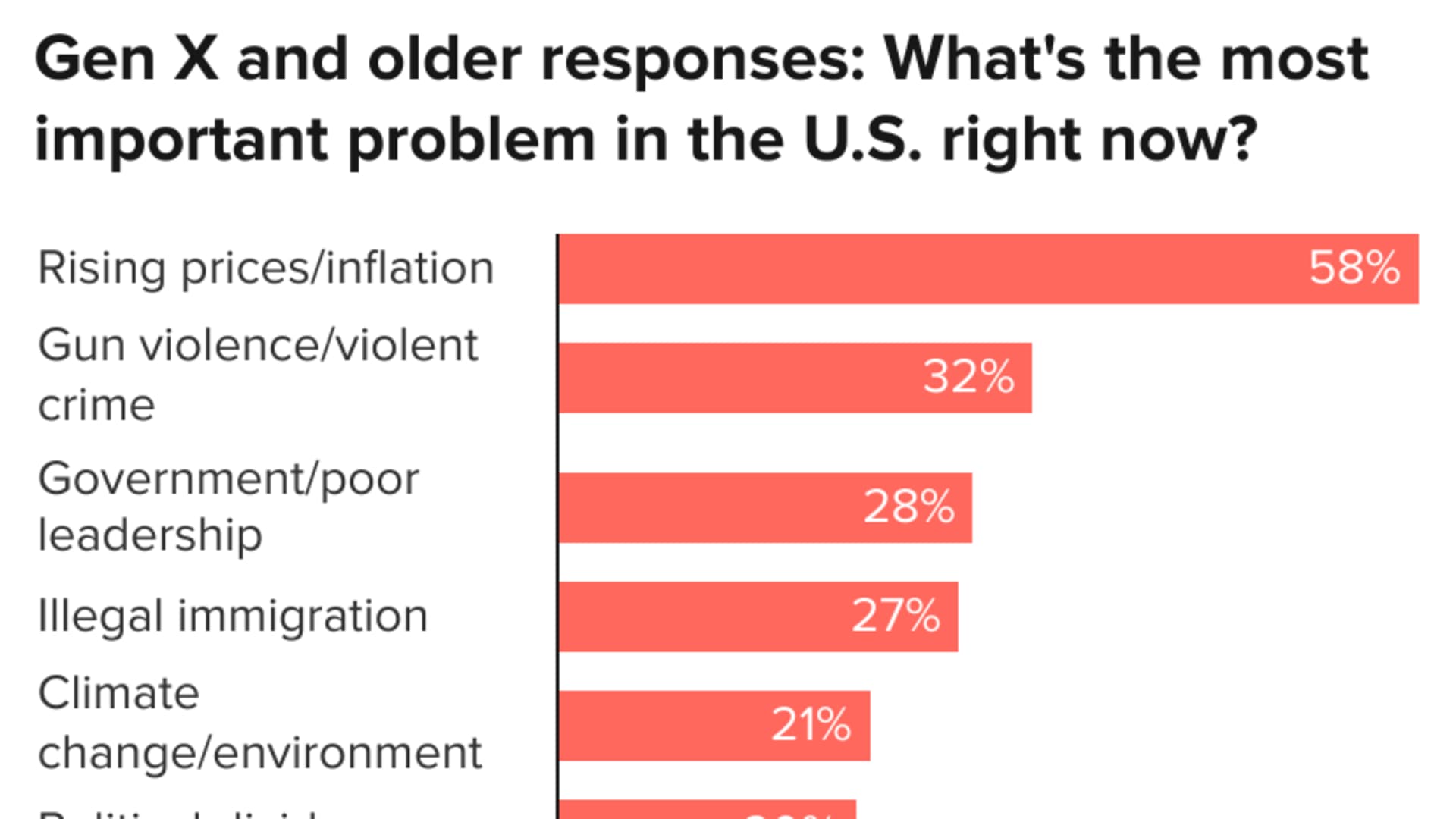
Americans' concern about inflation is three times larger than concern for Covid-19
Younger generations still concerned about the pandemic, but inflation is more pressing
Inflation tops Covid as American's biggest concern
--
Get Southern California news, weather forecasts and entertainment stories to your inbox. Sign up for NBC LA newsletters.
This time last year, the Delta variant was about to send Covid-19 cases to what would be their highest peak of the pandemic so far. It's no wonder, then, that 45% of Americans ranked Covid as the biggest issue facing the U.S. at the time, according to last year's Consumer Trends Survey from The New consumer.
But now, that concern has been replaced with worries about inflation and rising prices. Just 16% of people rank Covid-19 as the most important problem, compared to 45% who say inflation is, [according to...] [I'm assuming there's a new survey for this year?]
[Let's add another line here introducing what the rest of the story will explore/explain. We should make it clear from the jump if the story is about the growth of inflation fears or the waning of covid fears]

Older generations are less concerned about Covid, despite higher risk
Not everyone has moved on, though. Younger generations are still worried about Covid-19, with 18% of Gen Z and millennials ranking it a top concern.

Just 13% of respondents who are Gen X and older still rank Covid as a top concern. In fact, the virus didn't even crack the top seven of older generations' primary concerns.

While vaccinations and treatments have made Covid seem less threatening than at the beginning of the pandemic, the risk of serious symptoms — including death — remains, and grows larger with age.
Money Report
Those 85 and older are most at risk for developing serious symptoms from a Covid infection, according to the Mayo Clinic, and those 65 and older account for an estimated 81% of Covid deaths. [link to where this stat is from?]
Severe Covid cases can bring financial turmoil
Inflation undoubtedly has an immediate and far-reaching impact: Not everyone will get Covid this month, but almost everyone will have to buy groceries.
But the long-term financial implications of a severe Covid case could be far worse than a bigger grocery bill. Over 98 million people reported current Covid cases as of December 1 according to the CDC with over 15,000 hospitalizations. The Department of Health and Human Services estimatesas many as 30% of Americans with Covid have developed long-term symptoms. [Instead of stats on how many people have Covid, are there any we can include about the cost of it? How much does it cost to be hospitalized? How much have people paid due to long covid symptoms?]
Plus, a hefty hospital bill may be just the beginning, says Josh Bivens, director of research at the Economic Policy Institute.
"The poverty rate of people with disabilities is about two-and-a-half times as high as for others, and the share of those with disabilities who have medical debt is about five times as large as for others," he says. [Did he say this directly to us or elsewhere?] "There's tons of uncertainty about the long-term health implications of Covid-19, but even a tiny bit of long-term illness/disability risk associated with Covid-19 will have big economic costs."
Inflation or illness: the lesser of two evils?
Though it can feel like inflation is an inescapable problem, Bivens says it's less directly tied to the pandemic at this point, and more related to ripple effects and the war in Ukraine. And while he acknowledges the pain higher prices can cause consumers, he says the true cost on inflation isn't nearly as damaging as that of Covid. [This graf feels a bit convoluded. Is there a way to rewrite to make his point clear right away?]
"Today, the main winners [of inflation] have been corporate profits and I might not like that, but, it's not actually an economic cost, it's a redistribution," Bivens says. "The pandemic imposes real aggregate costs – both in health and the economy through less production because of supply-chain snarls and people missing work."
[I'm wondering if we need this last section? Could potentially cut and flesh out the one above of the costs of inflation v. covid]
Want to earn more and work less? Register for the free CNBC Make It: Your Money virtual event on Dec. 13 at 12 p.m. ET to learn from money masters how you can increase your earning power.






